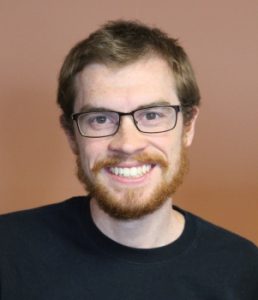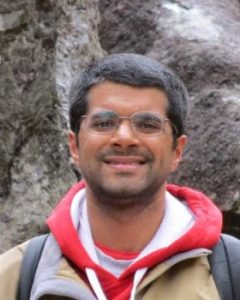Congratulations to Keith Bechtol and Victor Brar, who were both promoted to associate professors of physics with tenure!

Bechtol is an observational cosmologist with research interests in dark matter and dark energy, using the whole Universe as a lab to understand the fundamental physics of nature. He is part of the Dark Energy Survey (DES) that has cataloged more 500 million galaxies and thousands of supernovae to understand the nature of dark energy. He and his group are also working on the construction and commissioning of the Vera C. Rubin Observatory in preparation for the Legacy Survey of Space and Time (LSST). LSST is expected to catalog more stars, more galaxies and more solar system objects during its first year of operations than all previous telescopes combined.
“Professor Bechtol plays a leading role in the Vera C. Rubin Observatory, which is now poised to enable a major leap in the data available for understanding the development of our universe,” says Mark Eriksson, Chair and John Bardeen Professor of Physics.
Bechtol was a co-convener of the DES’s Science Release Working Group for four years and a co-convener of the Milky Way Working Group for two years. He is now serving as Technical Coordinator for the LSST Dark Energy Science Collaboration. In 2022, he was selected to the Department of Energy’s Early Career Research Program. He also proposed and is the faculty lead for the physics department’s Thaxton Fellowship, whose goal is to provide more equitable access to physics research experiences for undergraduates.

Brar, the Van Vleck professor of physics and a member of the Wisconsin Quantum Institute, is an experimental condensed matter physicist with a research focus on quantum materials and novel imaging techniques. His group works on developing metamaterials such as 2D materials for use in laser sailing or fabricating graphene structures for use in telecommunications. They also use scanning tunneling microscopy and scanning tunneling potentiometry to understand the physical and electrical properties of materials.
“The experiments performed by Professor Brar and his research team have enabled measurements of completely new regimes for electron transport in 2D materials,” Eriksson says.
Brar was awarded a Moore Inventor Fellowship in 2018, a Sloan Fellowship in 2021, and a National Science Foundation CAREER award in 2023. He has additionally received two UW–Madison Research Forward awards.